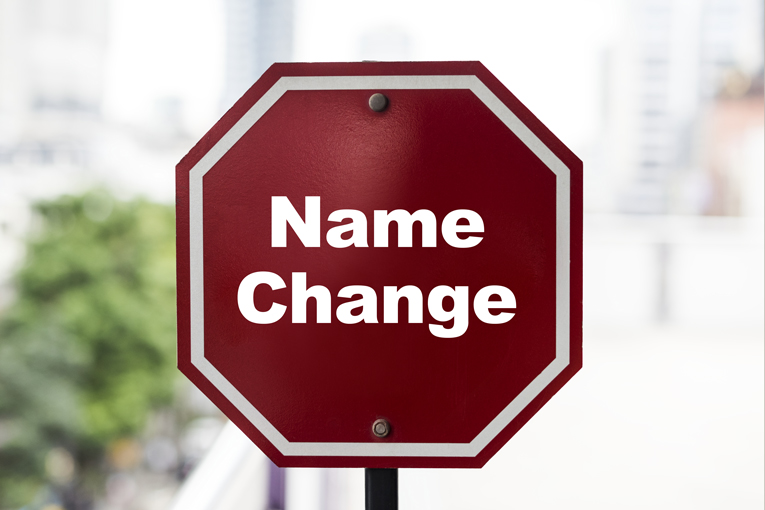How to change your name after divorce in the UK?

Changing name after divorce represents more than just a legal procedure – it’s often an emotional journey toward reclaiming your identity. Whether you’re considering returning to your maiden name or seeking a fresh start, understanding how to change your name after divorce in the UK can feel overwhelming. This guide will walk you through the essential steps and requirements, though we recommend consulting a qualified solicitor for personalized guidance tailored to your specific circumstances.

Key Takeaway: Can I change my name immediately after receiving my decree absolute?
Navigate the post-divorce name change process confidently with our step-by-step guide, saving time and avoiding costly mistakes.
Legal requirements for changing name after divorce
The UK legal framework provides significant freedom when changing name after divorce, with fewer restrictions compared to many other countries.
Core legal requirements:
- Must be over 18 years old and mentally capable.
- Must not intend to deceive, defraud, or evade legal obligations.
- Must possess a finalized divorce (decree absolute) from a recognized court.
- Must not choose protected titles (e.g., Royal titles, professional designations).
- Must inform government bodies, financial institutions, and other relevant authorities.
- Must not select names that are offensive, promote criminal behaviour, or impossible to pronounce.
Step-by-step process: How to change your name after divorce
The process of changing name after divorce follows a clear sequence to ensure legal recognition across all official bodies:
- Apply for your decree absolute to be amended with your new name choice.
- Submit a statutory declaration or deed poll (if not changing back to maiden name).
- File the change with the Court of Record (optional but recommended).
- Order certified copies of your amended decree absolute.
- Complete name change forms for each organization.
- Provide supporting documents (original decree absolute, ID).
- Follow up after 2-3 weeks if no confirmation received.
Once your legal documents are ready, you’ll need to update your records with various organizations in order of priority: begin with HMRC and DWP, then move on to your passport and driving licence, followed by the Electoral Register, banks, healthcare providers, and finally your employer and professional bodies.
How do I change my name after divorce: Essential documents
Apart from your decree absolute, how to change your name after divorce requires several supporting documents to establish your identity and previous name history.
Primary documents required:
- Marriage certificate.
- Birth certificate showing maiden name.
- Original decree absolute (or certified copy).
- Proof of address (dated within last 3 months).
- Name change deed (if choosing a new surname).
- Valid photo ID (current passport or driving licence).
- Statutory declaration (if not returning to maiden name).
Supporting documents (if applicable):
- Apostille certificates for overseas documents.
- Previous deed polls or name change documents.
- Proof of professional status (for protected titles).
- International marriage certificates with translations.
Updating official records after divorce
After your decree absolute is finalized, you’ll need to systematically update your records with various government bodies and organizations.
Updating your passport: To change your name on your passport, submit an online or paper application form along with your decree absolute and current passport. You’ll need to provide two identical passport photos and pay the standard renewal fee for online applications. Standard processing time is 3-4 weeks.
Change name on driving licence after divorce: Updating your driving licence requires completing form D1 from the DVLA website and submitting it with your current licence and decree absolute. This service is free for name changes and typically takes 2-3 weeks to process. An express service is available for urgent cases.
Updating bank accounts and financial records: Visit your local bank branch with your ID and decree absolute to begin the process. The bank will update all linked accounts and cards, issue new cards and cheque books as needed. Remember to inform credit reference agencies and review all standing orders and direct debits for necessary updates.
National Insurance and government records: Access your personal tax account to notify HMRC of your name change. If you receive benefits, update your details with DWP, and inform your local council for tax purposes. Don’t forget to update your electoral register details and modify your Universal Credit account if applicable.
How much does it cost to change my name back to my maiden name?
The costs for changing name after divorce vary depending on your chosen approach and the documents you need to update. If you’re returning to your maiden name, the decree absolute alone often suffices, making this the most cost-effective option.
Essential document costs: Updating your passport costs £82.50 online or £93 by post. A deed poll, if required for a new surname choice, typically costs between £18-£35 through official channels. Priority services for urgent passport renewals cost £155, while an urgent deed poll service can cost up to £75.
Additional administrative costs: Changing your driving licence is free, but you may need to pay for postal services and certified copies of your decree absolute (£11 per copy from the court). Banks and utility companies generally process name changes without charge, though some premium bank accounts may incur administration fees.
Do I need a solicitor to change my name after divorce?
The process of how to change your name after divorce can be completed without legal representation, though professional guidance offers valuable support in certain circumstances.
When legal support is recommended: Professional legal support proves particularly beneficial if you’re dealing with international marriages, have complex financial arrangements, or need to change children’s names as part of the process. A solicitor can navigate potential complications and ensure all documentation meets legal requirements.
When you can proceed without a solicitor: For straightforward cases where you’re returning to your maiden name with a UK decree absolute, the process can typically be managed independently. Government agencies and financial institutions are well-versed in handling post-divorce name changes and provide clear guidance for self-navigation.
FAQs
- How long do I have to change my name after divorce? There is no time limit. You can change name back to maiden name legally at any point after receiving your decree absolute.
- Can I change back to my maiden name without a divorce UK? You can revert to your maiden name at any time using a deed poll or statutory declaration, even without divorce.
- Can I use both my married and maiden names legally? You can use dual names provided you register this with relevant authorities and don’t use it for fraudulent purposes.
- Do I need to inform the registry after changing my name? While there’s no central name registry in the UK, you must update your details with HMRC, DWP, and your local council.
Changing name after divorce in the UK is a straightforward process when you follow the correct procedures. Whether choosing to return to your maiden name or select a new one, understanding the legal requirements and necessary steps ensures a smooth transition.
Need professional assistance with your name change?
Contact a qualified family law solicitor from Qredible’s network for personalized guidance. Book a consultation to discuss your specific situation and ensure all legal aspects are properly handled.
KEY TAKEAWAYS
- Your decree absolute serves as the primary legal document for returning to your maiden name without additional court applications.
- Most organizations, including passport offices and DVLA, accept the decree absolute as sufficient proof for name changes.
- The process is free for many official documents, with main costs only applying to new passport issuance.
- There’s no time limit for changing name after divorce, allowing you to make the change when you feel ready.
Do you need a solicitor?
Find a solicitor on Qredible in just a few easy steps
















